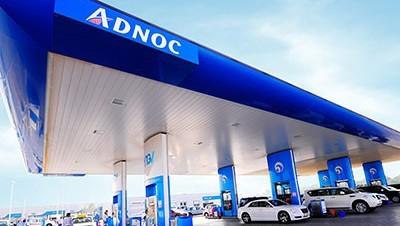
For years the United Arab Emirates had the lowest automobile fuel prices in the world. Thanks to the government’s long-standing policy of subsidizing gasoline (petrol) and diesel, current average gasoline prices are less than 1.7 dirhams (50 cents) a liter. Considering the average price worldwide is about $1.21 a liter ($4.60 per gallon), driving the 87 miles (140 km) between the city centers of Abu Dhabi and Dubai is a bargain at the pump.
But the bargain for the UAE’s citizens and expats comes with a huge price. The International Monetary Fund (IMF) estimates that petroleum subsidies cost the UAE’s government about $7 billion a year, with all energy subsidies totalling $29 billion annually — almost 7 percent of the country’s GDP. Intergovernmental organizations including the IMF and World Bank have long called on countries in the Middle East to end subsidies for fuel and food, largely because of economic (and recently, environmental) arguments. Some of the reasons behind subsidies are cultural, as countries’ rulers within the region view subsidies as a way to share their wealth and to protect the poor.
But as of August 1, automobile fuel prices will no longer be subsidized, and the Ministry of Energy each month will set the cost of gasoline and diesel largely based on the prices reflected in global markets.
The result could be a society that rethinks its relationship with the car. Currently the UAE is a society heavily reliant on the automobile for transportation. Dubai has an impressive metro system, but large swaths of the nation’s largest city have little access to public transportation. Getting around Abu Dhabi is almost impossible without a set of wheels. And those wheels are big — the largest SUV each automaker sells on the market are the dominant cars one sees on the roads. Meanwhile, except for the country’s beaches and sidewalks along city waterfronts, most of the UAE is largely unfriendly to pedestrians and bicyclists.
So, for a country that covets a leadership role in the global debate over climate change, this announcement signals the UAE is taking sustainable development more seriously. Abu Dhabi hosted a United Nations meeting last year in the run-up to COP20, and will host the biennial Ecocity World Summit this fall. The legacy of the founder of the UAE in part lies on his focus on environmental stewardship, and is largely behind increased efforts to conserve the country’s mangroves and endangered species. Abu Dhabi has also launched Masdar City, which the emirate promotes as a clean technology cluster that increasingly attracts more multinational companies and startups.
But ending fuel subsidies is a substantive policy that could change consumer behavior and nudge citizens to think more responsibly and sustainably. Most residents of the country drive down the street for a quick errand or leave their car’s engine on while running the air conditioning -- not because of the harsh summer weather, but because they can. To that end, many residents have expressed dismay over the announcement, fearing prices in the country for more goods and services will surge.
Nevertheless, with the price of oil cratering, such price increases will not create nearly as much shock as they would if oil was over $100 a barrel. And in the long run, more consumers will consider smaller cars (such as my Kia, the smallest car I could find) or even hybrids instead of the typical four-wheel drives. If the government next tackles fuel used for homes and businesses, nascent industries such as solar and smart home systems could find a potentially lucrative market here.
Of course, the decision to scrap subsidies was more economic than environmental. Without the subsidies, the UAE’s break-even petroleum price falls to $65 from $80, and the government’s budget deficit would also fall by 80 percent. But UAE residents will soon drive less, demand more public transportation and, in the future, builders will create developments far friendlier to those who eschew driving for walking. And for a country grappling with balancing sustainable development with economic growth, this week’s announcement is one that will pay many dividends in the long run.
Image credit: ADNOC

Leon Kaye has written for 3p since 2010 and become executive editor in 2018. His previous work includes writing for the Guardian as well as other online and print publications. In addition, he's worked in sales executive roles within technology and financial research companies, as well as for a public relations firm, for which he consulted with one of the globe’s leading sustainability initiatives. Currently living in Central California, he’s traveled to 70-plus countries and has lived and worked in South Korea, the United Arab Emirates and Uruguay.
Leon’s an alum of Fresno State, the University of Maryland, Baltimore County and the University of Southern California's Marshall Business School. He enjoys traveling abroad as well as exploring California’s Central Coast and the Sierra Nevadas.














